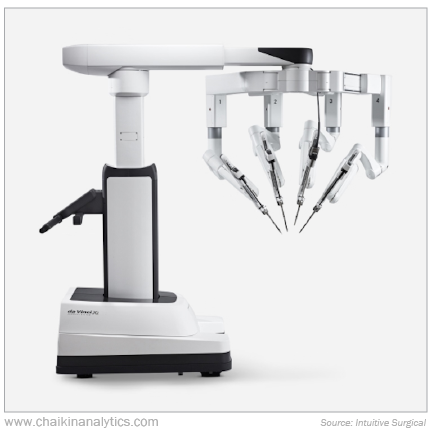AI Drives Investment Moves: Billionaire Philippe Laffont’s Strategy Revealed
The rise of artificial intelligence (AI) has transformed the technology landscape dramatically. This shift is evident in the remarkable performance of the “Magnificent Seven” stocks, a group closely linked to technological advancements. Since AI’s emergence early last year, each of these tech giants has significantly outperformed the S&P 500. Many billionaire investors are closely monitoring these stocks, each pursuing unique investment strategies.
Philippe Laffont, founder of Coatue Management, stands out among these billionaires. He turned a $50 million investment in 1999 into $27 billion in assets under management, establishing his hedge fund as a leader in tech investments.
Laffont attributes his success to recognizing major technological shifts and capitalizing on the resulting opportunities. “You don’t need a thousand big ideas to do well in our business, you just need the one or two key ideas that then all the dominoes start falling from,” he shared in an interview with the Financial Times. This principle guided his actions in the latest quarter.

Image source: Getty Images.
Adjustments in the Magnificent Seven
Laffont holds numerous stocks, but it’s noteworthy that 31% of his portfolio consists of the Magnificent Seven, many of which are AI-linked. In the recent quarter, Laffont made significant changes, selling some shares while increasing his stake in others. Notably, he sold over 3.6 million shares of Nvidia (NASDAQ: NVDA), accounting for 26% of Coatue’s position in the company.
Sean Williams from Fool.com pointed out that Laffont has liquidated about 80% of his Nvidia shares over the last 18 months. Despite these sales, the value of his remaining stake has only dipped by $152 million, now standing at $1.23 billion, which represents 4.5% of the portfolio and remains the fund’s seventh largest holding. Nvidia has excelled in the AI sector, with skyrocketing sales of its graphics processing units (GPUs) contributing to its soaring stock price.
The same pattern applies to Meta Platforms, another key asset in Laffont’s portfolio. He reduced his holdings by 488,000 shares, or approximately 12% of Coatue’s stake, yet Meta remains the largest holding with 3.69 million shares worth $2.11 billion. Meta has established itself in the AI field with significant advancements in their technology models.
Both Nvidia and Meta have shown impressive growth, with their stock prices climbing 889% and 366%, respectively, over the last couple of years. Thus, Laffont’s trimming of these positions appears more like strategic portfolio management than a lack of faith in the companies.
Investing in Future Winners
Sir Isaac Newton’s third law of motion suggests an object in motion stays in motion unless acted upon by an external force. Applied to investing, it translates to the idea that successful investments tend to keep succeeding. Laffont’s recent acquisitions support this notion. He increased his stake in Tesla (NASDAQ: TSLA) by adding 596,000 shares, a 36% increase. This brought his total ownership to 2.23 million shares, making up 2.2% of his portfolio.
This decision seems wise, considering Tesla stock increased by 30% in just six weeks. The expected loosening of regulations on self-driving cars is anticipated to benefit the company significantly.
Additionally, Laffont increased his investments in Alphabet (NASDAQ: GOOGL) (NASDAQ: GOOG) by acquiring more than 917,000 Class A shares (up 33%) and 46,000 Class C shares (up about 7.5%). Coatue now holds over 4.3 million Alphabet shares worth $721 million, or about 2.7% of the portfolio.
It is evident why Laffont is focusing on Alphabet—its growth potential and appealing valuation, currently selling at 23 times earnings, stand out among the Magnificent Seven.
Laffont has also enhanced his stake in Amazon (NASDAQ: AMZN) by adding about 496,000 shares, reflecting a 4.6% increase. This brings his total holding to approximately 11.3 million shares valued at $2.1 billion, making it Coatue’s second-largest asset. Amazon is priced at roughly three times its sales, the most affordable among the Magnificent Seven based on price-to-sales ratios, paired with its strong positions in various sectors.
His stake in Microsoft (NASDAQ: MSFT) increased by 151,000 shares, a rise of about 4%, making Coatue’s stake 3.85 million shares worth around $1.7 billion, accounting for roughly 6% of the portfolio. Microsoft benefits from its successful AI integration, with a competitive pricing structure at 27 times projected earnings for 2026, illustrating its growth prospects.

Data by YCharts
Should You Consider Following Laffont’s Lead?
While Laffont’s investment decisions in the third quarter appear solid, whether to mirror them depends on your views regarding AI’s future. Projections suggest the AI market could reach upwards of $1 trillion. The Magnificent Seven companies are leading AI development, and capturing even a fraction of this emerging market could yield significant returns for both the firms and their investors.
Based on the compelling reasons shared, there’s merit in considering investments in these stocks. Personally, approximately 35% of my portfolio is allocated to Magnificent Seven stocks, a percentage I anticipate may grow as AI continues to develop.
Seize the Opportunity Before It’s Too Late
Do you ever feel like you missed the best opportunities in stock investing? Don’t worry; there’s still a chance to get in on the action.
Occasionally, our expert analysts issue a “Double Down” stock recommendation for companies poised for growth. If you think you’ve missed out, now may be the perfect time to invest. The numbers demonstrate the potential:
- Nvidia: If you invested $1,000 when we doubled down in 2009, you’d have $378,269!
- Apple: If you invested $1,000 when we doubled down in 2008, you’d have $43,369!
- Netflix: If you invested $1,000 when we doubled down in 2004, you’d have $476,653!
We are currently giving out “Double Down” alerts for three exceptional companies, and this opportunity may not come around again soon.
See 3 “Double Down” stocks »
*Stock Advisor returns as of November 18, 2024
John Mackey, former CEO of Whole Foods Market, an Amazon subsidiary, is a member of The Motley Fool’s board of directors. Suzanne Frey, an executive at Alphabet, is a member of The Motley Fool’s board of directors. Danny Vena has positions in Alphabet, Amazon, Microsoft, Nvidia, and Tesla. The Motley Fool has positions in and recommends Alphabet, Amazon, Microsoft, Nvidia, and Tesla. The Motley Fool recommends the following options: long January 2026 $395 calls on Microsoft and short January 2026 $405 calls on Microsoft. The Motley Fool has a disclosure policy.
The views and opinions expressed herein are those of the author and do not necessarily reflect those of Nasdaq, Inc.









